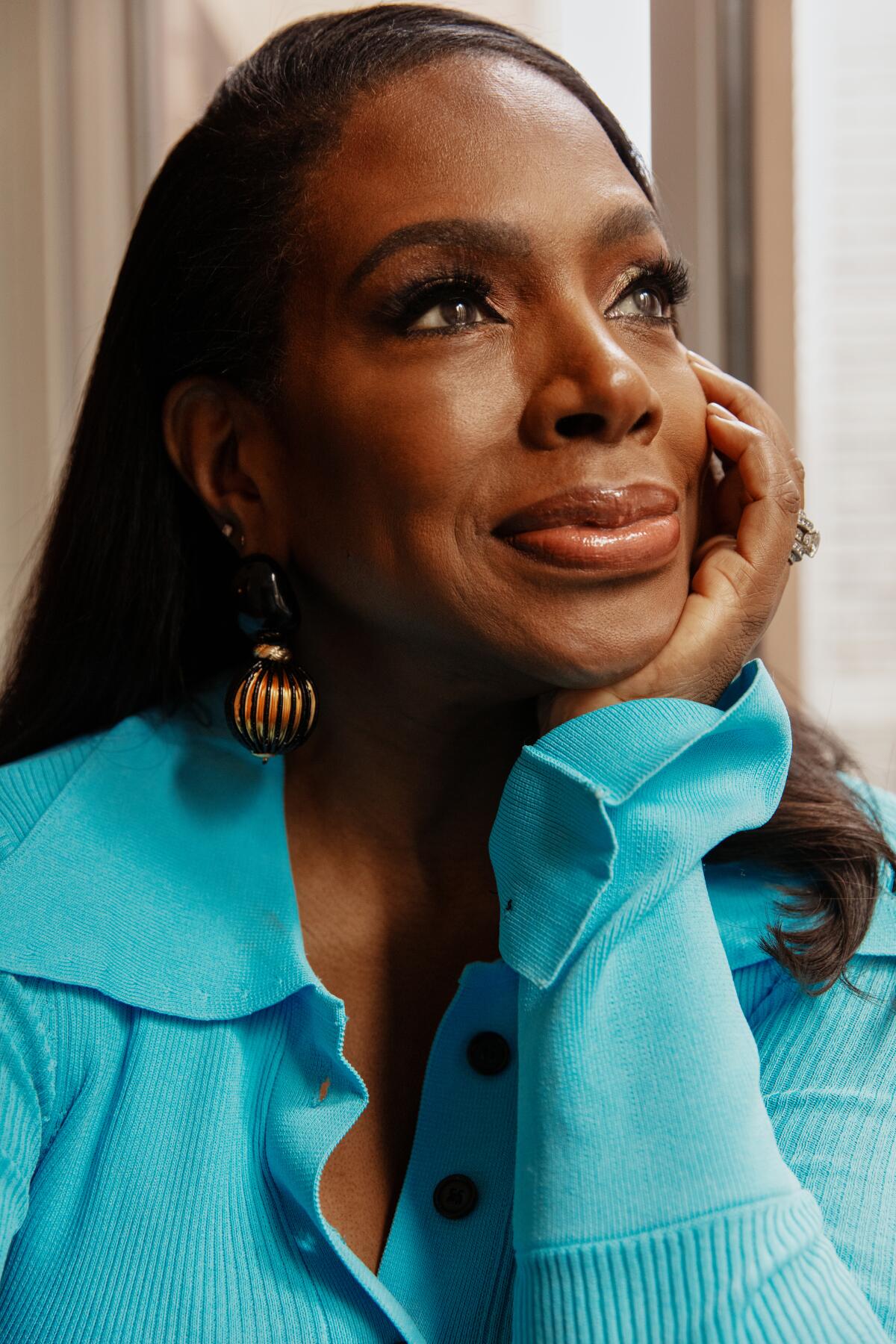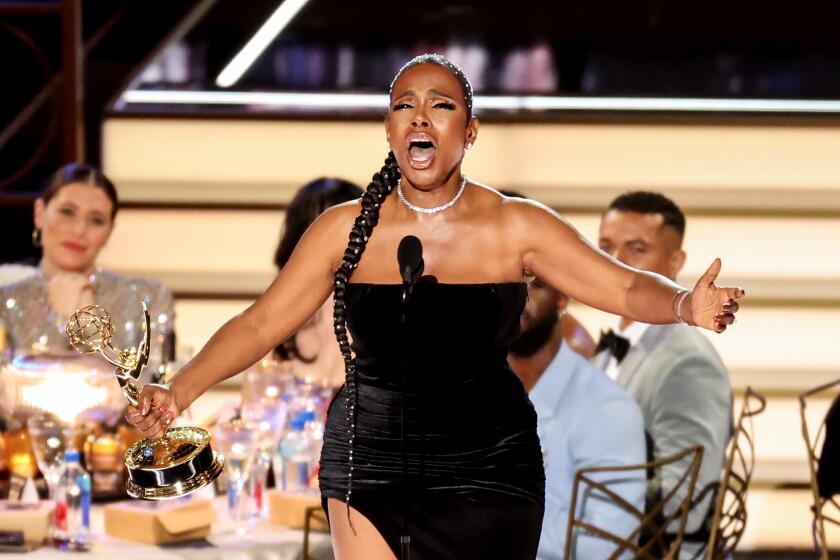Sheryl Lee Ralph is all about the next generation

- Share via
When Sheryl Lee Ralph opens her mouth, people listen — whether she’s playing take-no-guff kindergarten teacher Barbara Howard on “Abbott Elementary” or singing her Emmy acceptance speech in September, when she became only the second Black woman to win the award for supporting comedy actress. During her five decades in showbiz, Ralph has left her mark seemingly everywhere, from Broadway (earning a Tony nomination for “Dreamgirls”), film (“Sister Act 2: Back in the Habit”) and TV (“Moesha”). And as The Envelope learned during a Zoom chat with Ralph (who’s in New York to co-produce “Ohio State Murders” on Broadway), it’s about time people started paying attention to her song.
After your Emmy win, you said that you’d been prepping for this since you were 5. How did the reality compare to the dream?
Much better. Much sweeter. It’s not like I go through my career thinking, “Oh, award, award, award.” You go through your [career] thinking, “Let me be blessed with some of the best roles, the best characters and the best opportunity to do my best as an artist.” And I certainly have been given that opportunity, and it’s been wonderful.
Had you always planned to sing if you won?
[Dianne Reeves’] “Endangered Species” is a song I’ve been singing for years. This song was really like a warrior cry to tell these women’s stories, that I am a woman, I am an artist and I know where my voice belongs. It was that song I started [my one-woman show “Sometimes I Cry”] with. I was grounded in that song.
Sheryl Lee Ralph won an Emmy for her turn on ‘Abbott Elementary’ and nearly brought the house down with her rendition of this Dianne Reeves song.
Do you think you have a different perspective on getting a first Emmy in your 60s that you wouldn’t have had decades ago?
Absolutely. I am well aware that I put in the work. I knew the assignment. I had to never, ever stop believing. When Oprah walked out on that stage and said, “This is an award that only 1 in [300 million] people will ever have, so most of you won’t be getting it” — to sit there and be 1 in [300 million] … it is a sweet victory, and there is no sweeter revenge than success.
Do you feel people have underestimated you all these years?
It’s one thing for you to think [that]; it’s a whole other thing for people to say it to you. I was really doing what I love to do. I was expressing myself all of these years in my art. I was always handpicking the roles I chose to do so that exactly what is happening to me now would happen and young actors and actresses would look at me and say, “Thank you for what you did. You have been what I needed coming up in this industry.” Everything that I have done has been for them.
Did you have a teacher like Barbara Howard?
My Auntie Carolyn [Preston] was a reluctant teacher who turned into a blue-ribbon principal, who had even the queen of England visit her school twice because she dared to ask her to come to her school so her students could experience more. My dad was a lifelong learner, lifelong educator. Before my mother passed away, she told me she used to teach singing and piano and never told me [before]! I’ve been surrounded by teachers my whole life.
Barbara just feels so competent. Is that what people respond to about her?
People say all kinds of things. They say, “She’s the teacher I remember; she’s the teacher that believed in me; she’s the teacher that helped me believe in myself.” I’m just like, “Am I doing all that?” I would get spooked sometimes. In my first film, I played a juvenile delinquent — Barbara Hanley. And somebody connected the dots for me and said, “The reason Barbara Howard is such a great teacher is because she was Barbara Hanley.” She knows what the impact is of a teacher that really, really cares.
What do you still want to do?
[I’m] working on a children’s book. I want all children to be able to see themselves on the tree of life. Trust me, I looked at Tinker Bell, and you could not tell me that Tinker Bell wasn’t a chocolate girl. In my eyes, I was Tinker Bell, sprinkling bling everywhere. Now I’m producing stories about people that have been overlooked for no other reason than just because. I want to tell those stories.
Early in “Abbott,” Barbara makes a Sidney Poitier reference. Is that a coincidence or a throwback to the fact that your first film (“A Piece of the Action”) was directed by him?
It’s always a throwback. Quinta [Brunson] and our writers room really do pay attention. That’s how we got that cold opening where I mix up Black actors with white actors and singers. I made that mistake one day, and it turned into a big thing.
What white person had a name that made you think he had to be Black?
Darren Star. I was shocked when I met him. I was like, “You are not Black.” He looked at me like I was crazy. I was so proud of him with “Sex and the City” and how creative this young Black man is. Nobody could tell me that Darren Star wasn’t a Black man.
More to Read
Sign up for The Envelope
Get exclusive awards season news, in-depth interviews and columnist Glenn Whipp’s must-read analysis straight to your inbox.
You may occasionally receive promotional content from the Los Angeles Times.







